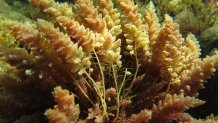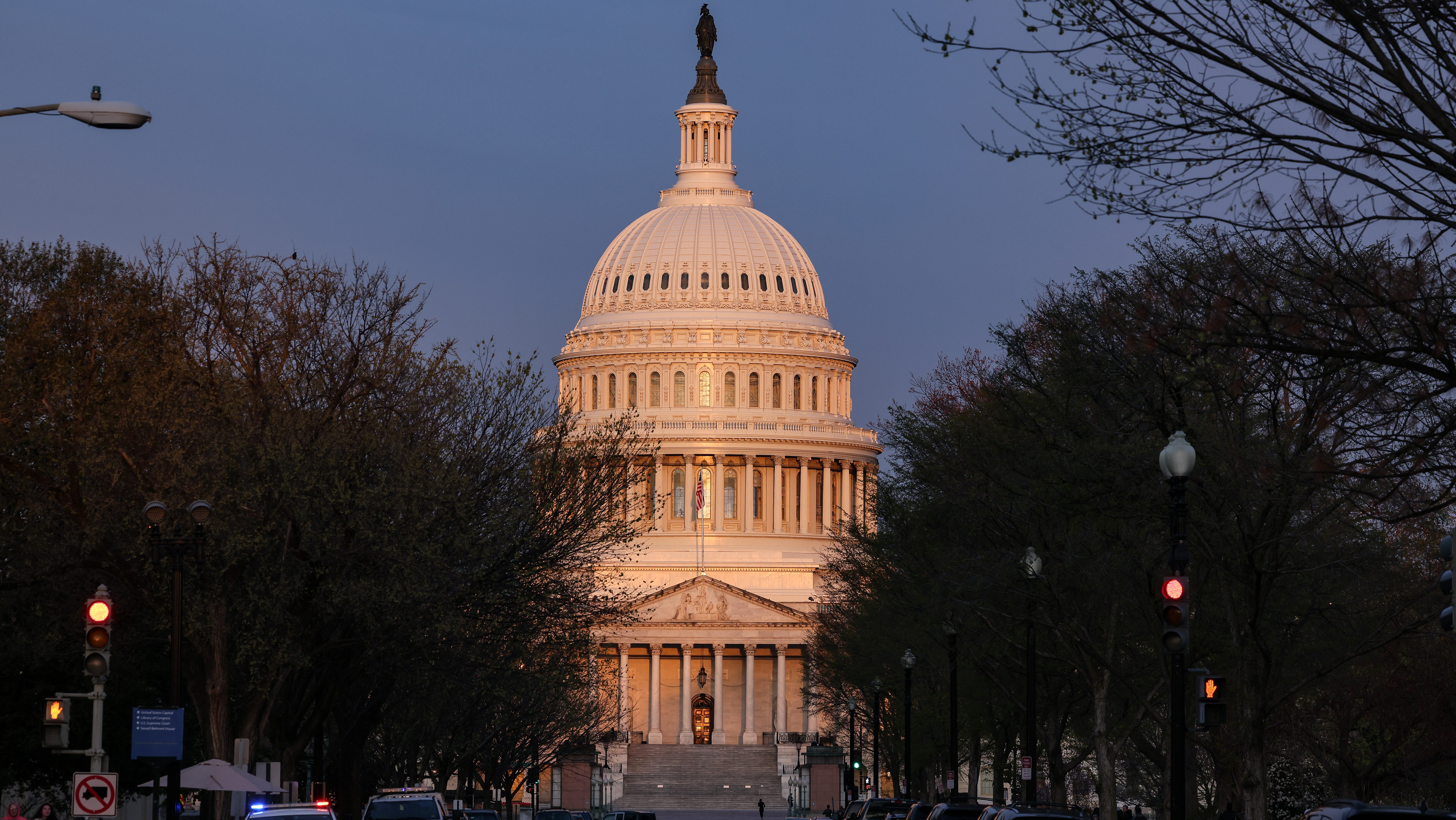A new study showed a specific kind of seaweed could help significantly reduce methane gas emissions in California.
The majority of those emissions come from the state’s 1.8 million dairy cows every time they burp, exhale or otherwise pass gas.
Scientists at the University of California, Davis found a type of algae called Asparagopsis taxiformis that could be a solution.

“This particular species produces a whole unique suite of chemicals that when fed to cows in very small quantities prevents the production of methane in the digestive process of cows,” said Jennifer Smith, a marine ecologist at Scripps Institution of Oceanography.
Smith joined the project several months ago and has since worked with the UC Davis team to find the most efficient way to cultivate the seaweed.
Asparagopsis taxiformis is native to Australia and Hawaii and can also be found growing off the coasts of Baja, Catalina Island and San Diego.
U.S. & World
News from around the country and around the globe
“We’re trying to understand how to grow it the best and the fastest with the least amount of energy input while also maximizing the production of the chemicals that we’re after,” Smith said.
California recently passed legislation requiring farmers and other producers to reduce their methane gas emissions 40 percent by the year 2030.
Although more research is needed to determine the long-term effects of feeding seaweed to cows, Smith said this project has great potential.
“If this seaweed thing works out this is going to provide a wonderful opportunity for the farmers in California and beyond a way to reduce their methane emissions,” Smith said.



